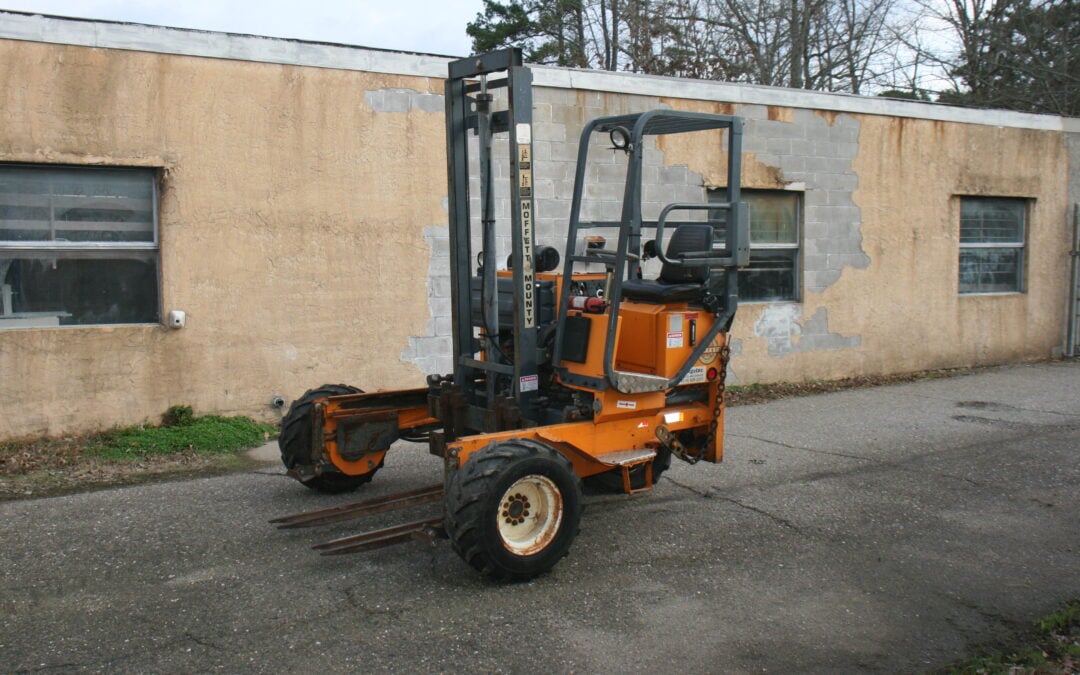Used Gas Forklifts vs. Electric Forklifts: Which is Right for Your Business?
When it comes to material handling, forklifts play a pivotal role in warehouses, factories, and various industrial settings. If you’re in the market for a forklift, you’ll likely encounter two primary options: used gas forklifts and used electric forklifts. Both have their advantages and drawbacks, making it crucial to understand the differences to make an informed decision. In this blog post, we’ll compare used gas forklifts and used electric forklifts, helping you determine which one best suits your needs.
Used Gas Forklifts
Used gas forklifts are a reliable choice for businesses that require robust material handling capabilities. These forklifts are powered by gasoline or propane, offering impressive power and speed. They excel in outdoor settings and tasks involving heavy loads. While they may emit emissions, making them less suitable for indoor use without proper ventilation, their versatility and availability of fuel sources make them a practical option for many industrial applications. Used gas forklifts provide cost-effective solutions for businesses looking to optimize their material handling operations.
Advantages:
Power and Speed: Gas-powered forklifts are known for their robustness and speed. They can handle heavy loads efficiently and move quickly, making them suitable for outdoor use and tasks that involve longer distances.
Versatility: Gas forklifts are versatile and can operate in a variety of environments, including indoor and outdoor settings. They are particularly useful in settings where you need a forklift that can quickly switch between tasks.
Fuel Availability: Gasoline or propane, the common fuel sources for gas forklifts, are readily available in most areas. This accessibility simplifies refueling and minimizes downtime.
Drawbacks:
Emissions: Gas-powered forklifts emit carbon monoxide and other pollutants, making them less environmentally friendly compared to electric forklifts. They may not be suitable for indoor settings without proper ventilation.
Operating Costs: While the fuel itself is relatively inexpensive, gas forklifts tend to have higher overall operating costs due to maintenance and fuel consumption.
Used Electric Forklifts
Electric forklifts are an eco-friendly and efficient choice for material handling. Powered by rechargeable batteries, they produce zero emissions, making them ideal for indoor operations and environmentally conscious businesses. Electric forklifts operate quietly, minimizing noise disruption in workplaces. While they have higher upfront costs, they often prove cost-effective in the long run due to lower maintenance and fuel expenses. These forklifts are particularly suited for settings where air quality, noise levels, and sustainability are key considerations.
Advantages:
Zero Emissions: Electric forklifts are environmentally friendly as they produce zero emissions. This makes them an excellent choice for indoor operations, where air quality is a concern.
Quiet Operation: Electric forklifts operate quietly, which can be advantageous in noise-sensitive environments, such as warehouses with office spaces.
Lower Operating Costs: While electric forklifts have higher upfront costs, they tend to have lower operating costs over their lifespan. They require less maintenance, and electricity is often cheaper than gas or propane.
Drawbacks:
Battery Life: Electric forklifts rely on batteries, which have limited operating hours per charge. This can lead to downtime for recharging, especially in multi-shift operations.
Charging Infrastructure: Setting up and maintaining charging infrastructure can be an additional investment for businesses switching to electric forklifts.
Choosing The Right Used Forklift
The decision between used gas forklifts and used electric forklifts should depend on your specific operational needs:
- Indoor vs. Outdoor: If your operations are primarily indoors and air quality is a concern, electric forklifts may be the better choice. For outdoor use or mixed environments, gas forklifts can provide the necessary power and speed.
- Noise Sensitivity: If noise is a concern in your workplace, electric forklifts are quieter, making them a suitable choice for settings where a quieter environment is desired.
- Operating Costs: Consider your budget for both upfront costs and ongoing operating expenses. Electric forklifts typically have higher initial costs but lower operating costs, while gas forklifts have lower upfront costs but higher operating costs.
- Emissions Regulations: Depending on your location and industry, there may be emissions regulations that impact your choice. Electric forklifts are usually compliant with stricter emissions standards.
- Shift Patterns: If your operations run multiple shifts daily, electric forklifts may require additional batteries or fast-charging solutions to ensure continuous productivity.
Summary
Choosing between used gas forklifts and used electric forklifts comes down to your specific operational requirements. Both options have their advantages and drawbacks, so carefully assess your needs and budget constraints before making a decision. Whether you opt for the power and versatility of gas-powered forklifts or the eco-friendliness and lower operating costs of electric-powered forklifts, there’s a forklift solution for every business.

